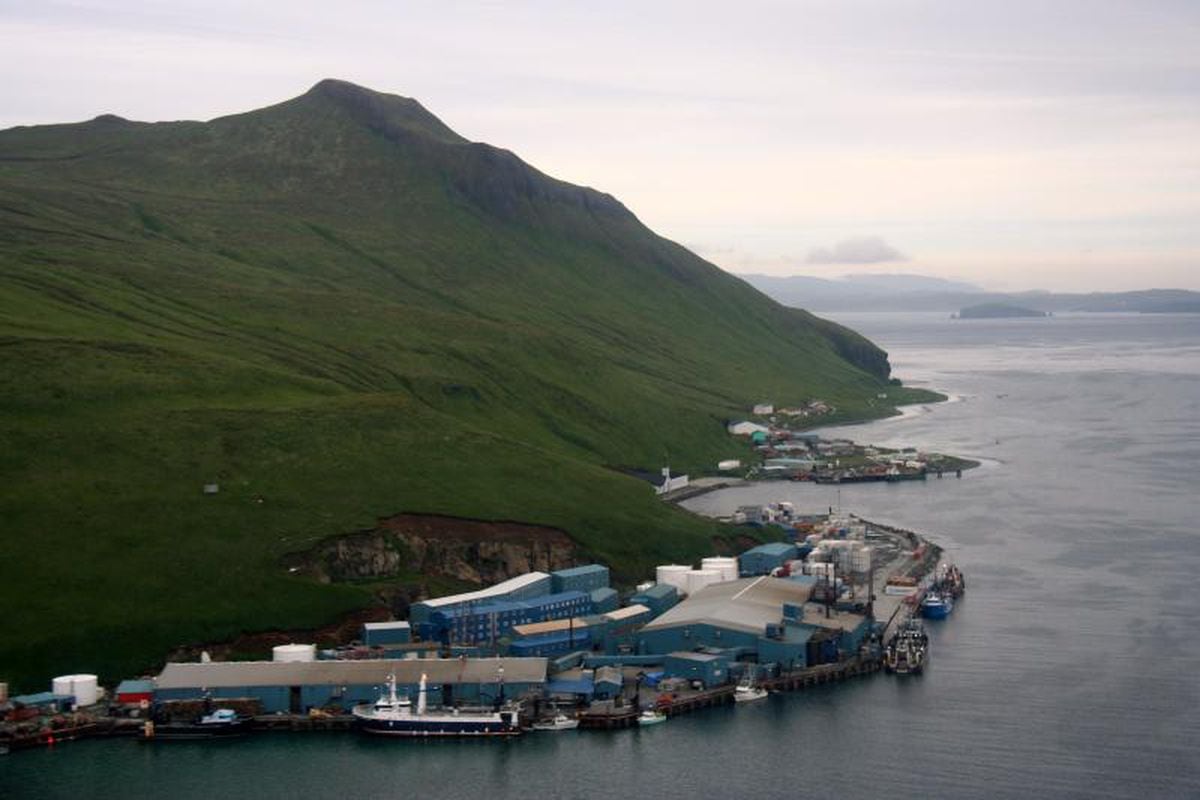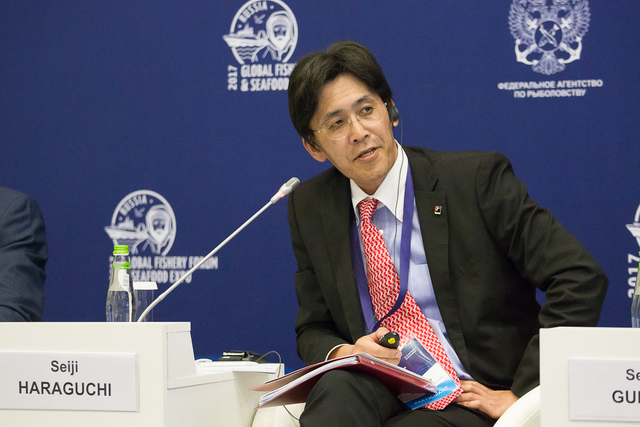The company on Thursday reported 266 workers tested positive for the virus this week with nearly all testing complete.
Trident also reported a separate, smaller outbreak aboard one of its three large catcher processor vessels, the 312-foot Island Enterprise.
That vessel arrived in Dutch Harbor on Thursday with two workers exhibiting COVID-19 symptoms, Trident said in a statement. Rapid testing through the night of all 125 people onboard revealed five confirmed cases and two non-positive workers reporting minor symptoms.
Trident officials say they don’t know how either of the outbreaks started. On Monday, Trident temporarily shut down the Akutan plant for at least three weeks. They plan to “re-quarantine” everyone on the Island Enterprise for at least 14 days.
Trident arranged emergency medical evacuations to Anchorage for five employees who became severely ill from COVID-19 and other conditions, the company said Thursday. The outbreak was first detected when one of four roommates tested positive Jan. 17 during a medevac for breathing problems.
As a precaution, Trident has also chartered flights to move about 100 employees from Akutan to quarantine in Anchorage, where additional medical support is available, the company said. Transferred groups include people with certain health conditions that put them at high risk for severe illness if infected. The groups also include employees with COVID-19 symptoms.
At this point, 613 employees remain at the Akutan facility, the company said. Of those, 195 who tested positive are isolating in company housing and have been separated from workers who tested negative. Trident plans to conduct rapid tests every one to three days and more accurate PCR tests as necessary, according to Stefanie Moreland, Trident vice president of government relations.
Trident operates the Akutan plant, about a half-mile from the actual village of about 100 people, as a closed campus. Employees quarantine for two weeks before making the trip.
The plant is one of three major shore processors currently shut down due to the virus just as the billion-dollar Bering Sea pollock fishery got underway on Jan. 20.
The other two are about 35 miles away in Unalaska: Alyeska Seafoods, with an undisclosed number of cases, and UniSea, which on Thursday reported a total of 80 cases since the beginning of the month, many of them picked up during the quarantine period, president Tom Enlow said. Half are still considered active.
Dozens of fishing vessels that normally deliver to plants are tied up at the docks in Dutch Harbor with nothing to do as they wait out the closures and avoid wasting any catch.
There are 14 to 20 boats that rotate through Akutan in the winter months and another 40 in rotation at each of the four plants in Dutch Harbor, according to Brent Paine, executive director of the United Catcher Boats.
The lucrative pollock fishery is structured as a catch-share program where plants and vessels can choose their schedule to some extent, unlike than a derby-style fishery like Bristol Bay’s salmon melee.
So — at least for now — there’s still time to wait out closures, though owners are closely tracking the timing of the valuable roe phase of the little silver fish churned into everything from fish sticks to sushi.
“As the weeks click off though, the panic feeling is going to set in a little more,” Paine said, adding that captains and crews are holing up aboard their boats.
“They’re probably watching a lot of videos,” he said. “It’s a wait and see here.”
UniSea hopes to start taking deliveries again on Monday, Enlow said. The company will basically be testing a third of its workforce every day on a continual basis through the season.
The decision to reopen is UniSea’s, but it was made in concert with state health officials and the Iliuliuk Family & Health Services clinic in Unalaska, he said.
Resuming operations at even one plant during the usually busy Bering Sea fishing season would be a major “pressure-release valve” for the industry — and the community, said Peggy McLaughlin, director of ports for the City of Unalaska.
With almost 60 slips, the harbor is chockablock with boats, according to McLaughlin. More are tied up at the city’s industrial dock or processor facilities. Locals aren’t seeing many fishermen wandering around. The town is mostly shut down, with bars at limited capacity.


















